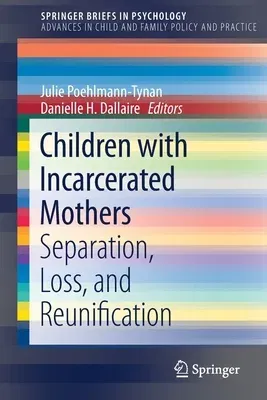Children with Incarcerated Mothers: Separation, Loss, and Reunification (2021)Paperback - 2021, 25 May 2021

Qty
1
Turbo
Ships in 2 - 3 days
In Stock
Free Delivery
Cash on Delivery
15 Days
Free Returns
Secure Checkout
Part of Series
Advances in Child and Family Policy and Practice
Part of Series
Springerbriefs in Psychology
Print Length
156 pages
Language
English
Publisher
Springer
Date Published
25 May 2021
ISBN-10
303067598X
ISBN-13
9783030675981
Description
Product Details
Book Edition:
2021
Book Format:
Paperback
Country of Origin:
NL
Date Published:
25 May 2021
Dimensions:
23.39 x
15.6 x
0.97 cm
ISBN-10:
303067598X
ISBN-13:
9783030675981
Language:
English
Location:
Cham
Pages:
156
Publisher:
Weight:
254.01 gm

